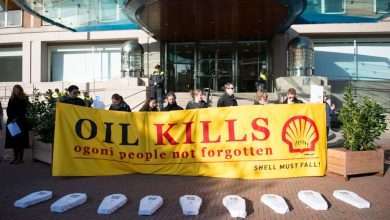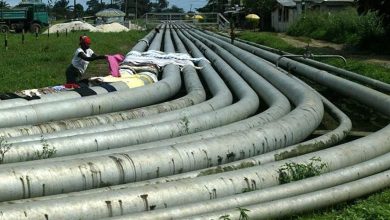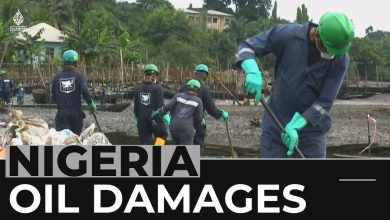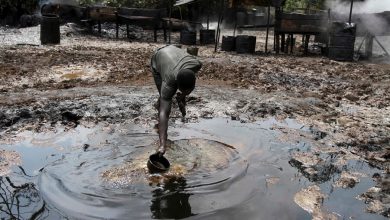My Childhood Memories of The Niger Delta Struggle: Let Joshua Maciver Breathe – by Felix Boye Dimaro
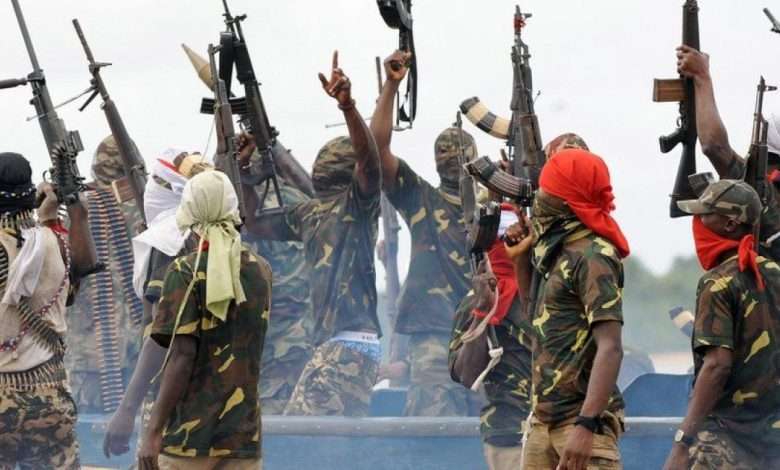
The Niger Delta region of Nigeria has played a significant role in the country’s revenue, primarily due to the exploration and use of fossil oil deposits. Over time, its contribution has increased dramatically, going from a mere 1 percent in 1958 to a staggering 98 percent in the 1990s, serving as a vital source of export earnings for Nigeria. The origin of the oil economic boom can be traced back to Bayelsa, where commercial oil reserves were discovered in 1956.
Despite this, the Niger Delta region has faced numerous challenges and continues to struggle today. Poverty remains prevalent, and the environmental damage caused by oil exploitation is a significant concern. There has also been a lack of investment in human capital and infrastructure development. In my hometown of Peretorugbene, located in the Ekeremor L.G.A, even basic road infrastructure is still absent. It was through encounters with influential figures like Oronto Douglas, Chief Chris Gomorai, Ayakeme Whiskey, P.Z Aginighan, Eng. Ebi Wodu, Felix Tuodolo, Chris Ekiyor, Famous Daunemighan, and later Jeremiah Owoupele, Tare Porri, Dr. Clarkson Agagha, Ebilade Ekerefe, Alfred Kemepade, among others, that my perspective was shaped.
These individuals within my privileged reach, were among those at the forefront of the Niger Delta struggle, tirelessly advocating for justice, fairness, and the equitable distribution of the country’s wealth. Groups like the Ijaw Youth Vanguard (with members such as Hon. Mutu Nicholas, Hon. Ekiyoemi Zuokumor, Lucky resident, Kennedy Orubebe, Karona Etonye, Brisibe Timi, Buku, and their leader, Elder Denyanbofa Dimaro) began to sprout in the early 1990s.
These men dedicated their youth to raising awareness about the challenges faced by the Ijaws and Niger Delta people. Their efforts inspired me to live a life beyond my own self-interest and instead focus on the betterment of society and our nation.
Volunteering with the Tompolo Foundation as a medical doctor within the creeks of the Niger Delta region further solidified my conviction that equity, justice, and service to humanity are paramount. It was through my experiences at the Tompolo Foundation that I developed a deep passion for volunteering in rural and challenging terrains, which eventually led me to volunteer(under the auspices of the Directorate of Technical Aid Corps) in Liberia for healthcare strengthening, following the devastation occasioned by the Ebola crisis.
My premium on equity, fairness, empathy and justice was formed by the echoes of the calls for resource control and self-determination, by these courageous Ijaw sons. However, this is the “Gen Z” era, state and local government officials in the Niger Delta region must anticipate long avoided interrogations. What have they done or doing with resources within their control?
The federal government’s tardy response to the peaceful demands of protestors resulted in frustration and a sense of despair, ultimately leading to the momentous Kaiama Declaration on December 11, 1998. This declaration marked the establishment of the Ijaw Youth Council (IYC), who were unwavering in their mission to secure resource control by any means necessary.
Prior to this, the Movement for the Survival of the Ogoni People (MOSOP) had employed peaceful protests, only to be brutally suppressed with the execution of Ken Saro-Wiwa and eight others. Therefore, it was no surprise that the IYC, with a motto hinting at the possibility of armed struggle, faced early hardships and violence. Oluwatoyin, in his comprehensive work titled “POST-AMNESTY PROGRAM IN THE NIGER DELTA: CHALLENGES AND PROSPECTS,” stated, that the federal military government responded by deploying an overwhelming number of troops, resulting in shootings, killings, and rapes. This state action, in turn, triggered the region’s youth to resort to violence as a legitimate form of protest.
Despite these challenges, the Ijaw youths, representing about 70 percent of the agitators in the Niger Delta, remained undeterred. Consequently, the region witnessed a surge in armed struggle and the formation of militant groups. Unfortunately, lives were lost, the nation suffered, revenues plummeted, and even foreign nationals and interests fell victim to the carnage. Many Ijaw youth, driven by their unwavering convictions in the emancipation of the Niger Delta, were tragically cut down in their prime. Some others had psychological traumas.
Communities bore the brunt of the turmoil, often left in a state of confusion and uncertainty as they struggled to determine whether to seek refuge with state forces or in the camps of armed militants. Even to this day, the lingering effects of the violence continue to haunt our women, who have become the collateral damage of a protracted conflict. Yet, the stance of IYC, nonviolent and militant agitators were unmistakable: if we do not get our desired federal government’s meaningful attention and the provision of the relevant political space, and this crisis is allowed to end a united Nigeria; so be it.
Then President Umaru Yar’Adua arrived and changed the game completely! Everything about him, from his body language and speech to his actions, conveyed a message of peace, empathy, and leadership through service. President Umaru Musa Yar’Adua was elected as the President of Nigeria on April 21, 2007, and served until his unfortunate passing on May 5, 2010. May his kind soul continue to rest in peace. He established the Godwin Abbe Panel, which played the crucial role in the establishment of the Presidential Amnesty Program (PAP) in 2009. And we have indeed observed the anticipated gains of the Presidential Amnesty Program. Importantly, peace was restored and the nation’s revenue began to soar again.
Given the upcoming gubernatorial elections in November 2023, in Bayelsa State, it is important to highlight some facts about the Godwin Abbe Panel Report, which forms the basis of the Presidential Amnesty Program. However, before diving into some relevant segments of that report, I would like to address certain individuals in the People’s Democratic Party (PDP) in Bayelsa State and emphasize that four more years of PDP or APC governance in Bayelsa is not sufficient a reason to undermine the Presidential Amnesty Program and risk the well-being of thousands of PAP beneficiaries.
Implying and making attempts to establish that a convicted ex-millitant Niger Delta agitator, despite subscription to the PAP remains unelectable; is a great disservice to all champions of the Niger Delta struggle, past and present. It is unacceptable to engage in politics that sacrifices anything and everything for the sake of another four years in power. The insensitivity is carried too far. What happens to the gains of the PDP lead government in the last four years, as basis for reelection? No doubt I subscribe to the All Progressive Congress (APC); the PDP can do better by harping on its successes in Bayelsa in the last four years for their campaigns.
Sadly, the distortion of facts has also made people of other regions and states, who are unfamiliar with the true situation, to criticize the good people of Bayelsa and the APC in the state. This is particularly true for those who are unaware that Joshua Maciver, who was previously involved in militant activities in his youth to improve conditions in Niger Delta, has not only received pardon from Late President yar’Adua but has successfully reintegrated into society.
He served as a caretaker chairman of Southern Ijaw L.G.A and was later a gubernatorial candidate, all under the PDP. Now, some individuals are denouncing him because he cross carpeted to the APC a few years back and is now positioned to become the state’s next deputy governor. But the ramifications could be grave. More PAP beneficiaries could be affected in the years ahead. I call on IYC, Ijaw National Congress (INC), Pan Niger Delta Elders Forum (PANDEF) and leaders of the Ijaw nation and Niger Delta to prevail on instigators of that myopic lawsuit to withdraw it immediately.
The attention of the Nigerian state and the relative political space we now have, came at a huge price – a product of many years of non-violent and violent agitations. Political manuovers, implicitly shutting out ex-millitants from the available political space, despite embracing the Presidential Amnesty Program is not only insensitive, but callous, smacks of betrayal and could lead to a revolt. Joshua MacIver of APC and his conviction prior to PAP, should be treated with caution by politicians and their gloved hands. A delicate line is about to be crossed and a regrettable precedence could be set.
The Godwin Abbe Report of The Presidential Panel On Amnesty And Disarmament Of Militants In The Niger Delta
According to this report, the granting of amnesty to combatants has been consistently proven to be an effective method in resolving conflicts, fostering reconciliation, and preventing further tensions. Recognizing this, the President has established a Panel to address the issue of amnesty for militants in the Niger Delta region.
The primary objectives of the panel are to create a comprehensive plan for amnesty and the disarmament, demobilization, and reintegration (DDR) of militants. Additionally, the panel aims to ensure that individuals (other than Niger Delta militants) with criminal records do not exploit the amnesty process and to determine the associated costs of implementing DDR initiatives.
The report stated that “Amnesty” is not mentioned in the constitution, but however empowers the President to grant pardon to any person concerned/convicted of any offence. These include those who have committed offence but not prosecuted, and those who have been prosecuted and convicted of offences. The Panel posited that all categories of militants should be allowed to benefit from the amnesty. This should include Henry Okah and his group who are only facing trial but not yet convicted.
It was further stated that “Amnesty goes beyond pardon as it completely obliterates all legal remembrance of the offence. Contextually, amnesty has been defined as a legislative or executive act by which a state restores those who may have been guilty of offences against it to a position of innocence. The Panel stressed that notwithstanding the absence of the word ‘amnesty’ in the constitution, the President can grant a reprieve that would operate as amnesty”.
The Panel further opined that the report would be useful to the judiciary, legislators and other tiers of government.
Yar’adua Niger Delta Amnesty Proclamation
On or about the 24th of June, 2009, Late President Umaru Musa Yar’Adua made the following proclamation: “NOW THEREFORE, I, Umaru Musa Yar’Adua, President of the Federal Republic of Nigeria, after due consultation with the council of States and in exercise of the powers conferred upon me by the provisions of Section 175 of the Constitution of the Federal Republic of Nigeria, make the following proclamation:
I hereby grant amnesty and unconditional pardon to all persons who have directly or indirectly participated in the commission of offences associated with militant activities in the Niger Delta;
The pardon shall take effect upon the surrender and handing over of all equipment, weapons, arms and ammunition and execution of the renunciation of Militancy Forms specified in the schedule hereto, by the affected persons at the nearest collection centre established for the purpose of Government in each of the Niger Delta States;
The unconditional pardon granted pursuant to this proclamation shall extend to all persons presently being prosecuted for offences associated with militant activities; and
This proclamation shall cease to have effect from Sunday, 4th October 2009.”
After carefully examining the relevant sections of the Godwin Abbe report, assessing the declaration of the presidential pardon, and studying the proceedings that led to Henry Okah’s release during that period; it goes against the principles of the sacred struggles of the Niger Delta people for any political group in Niger Delta to prosecute a former militant activist for his actions against an international oil company that neglected its social obligations in 2004, especially when he voluntarily submitted to the government and embraced the Presidential Amnesty Program. Dr. Timiebi Koripamo Agaye, the former Permanenent Secretary of the Ministry of Labour and spokesperson for the Godwin Abbe panel, who happens to be from Bayelsa, must be greatly disappointed by the political tactics that her brothers are embracing. Joshua is the APC deputy governorship candidate in the November, 2023 gubernatorial elections in Bayelsa State, and he has my support.

